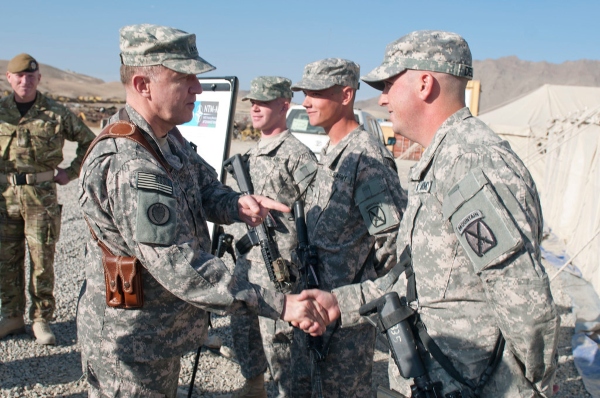There are few journeys in life worth pursuing more than a life in the military.
Serving the U.S. Armed Forces can open up many avenues as well as develop discipline, teamwork, and leadership skills.
Nevertheless, there are some military jobs that you want to avoid.
The worse jobs in the Army are necessary occupations yet not glamorous or what you think of when one says they serve in the military.
Learn more about the worse jobs in the Army and how to pursue a more worthwhile Military Occupational Specialty (MOS).
Related Article – Army MOS List: A List of all 159 Jobs in the Army
Table of Contents
#5. Culinary Specialist (MOS 92G)
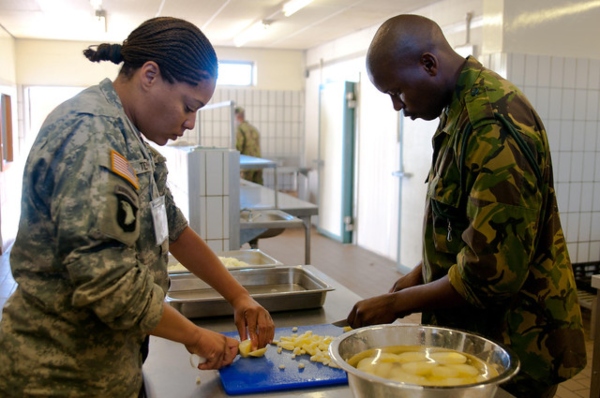
The United States Army refers to a job as a “Military Occupational Specialty” (MOS).
Consequently, there are some Army MOS that are more prestigious or popular than other jobs, as is the case with any career (military or civilian).
Army Culinary Specialists (MOS 92G) work very hard and fulfill an essential service.
Nonetheless, it’s far from the most glamorous Army job (as anyone that has experience in food service can attest to).
Culinary Specialists provide an important service yet do not get much of a reward for their hard work and effort.
You can expect extremely long days in the kitchen with very little time to get out and explore outside the base.
Considering that most people enlist in the Army to see the world, it’s an obvious disadvantage to working in food service.
You can watch this video posted by the U.S. Army Recruiting Center (below) to get a better idea of the job role.
One thing to keep in mind is that Army recruiting material tends to romanticize the actual duties of the military profession.
Job Duties
Army Culinary Specialists (MOS 92G) are primarily responsible for the preparation and service of meals.
Food Service may operate out in the field or at the garrison (much more likely).
Commercial kitchens like the ones needed to feed hundreds or thousands of troops is a hectic, fast-paced environment.
The work setting is usually miserable with hot, humid, and greasy conditions.
Army cooks prepare all types of food according to standard and dietetic recipes, as well as inspect, manage, and order inventory.
There is some reward in feeding the hungry mouths of troops but you don’t get a lot of room to be creative as most meals are pre-planned and ready to serve.
Therefore, assigning the job title ‘Culinary Specialist’ is a bit of a stretch.
The bottom line: If you are going to work in food service, you might as well avoid doing so in the military unless you are using the Army as a means to pay for college or another incentive.
#4. Shower, Laundry & Clothing Repair Specialist (MOS 92S)
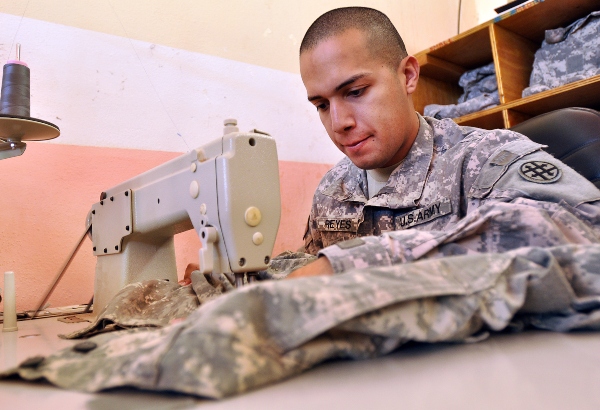
Army Shower, Laundry & Clothing Repair Specialist is about exciting as it sounds.
While another vital and essential service to the military, it doesn’t prevent MOS 92S from being one of the worse jobs in the Army.
Army Shower, Laundry & Clothing Repair Specialists (MOS 92S) perform housekeeping and laundry chores around the base.
They are primarily responsible for sorting and folding laundry, cleaning, and making clothing repairs.
Army bases function like small civilizations, which is why there is a need for essential services even if no one wants to do chores full-time during a tour.
Once again, the U.S. Army tends to glorify Shower, Laundry & Clothing Repair Specialists (MOS 92S) in their official recruiting videos:
Army Shower, Laundry & Clothing Repair Specialists operate mobile laundry systems, shower units, and light-duty sewing machines.
Most of the job duties involve receiving bulk, individual, or organizational laundry and sorting through the mess.
Let’s face it, very few people like doing these chores even at their own house. So the thought of doing them repetitively, 10-12 hours per day, sounds deflating.
While Army MOS 92S Specialists do learn how to alter sizes and repair uniforms and zippers, that’s probably the most exciting aspect of the military job.
Thus, Army MOS 92S Shower, Laundry & Clothing Repair Specialist is a means to serve the country but far from the best military career.
#3. Quartermaster & Chemical Equipment Repair (MOS 91J)
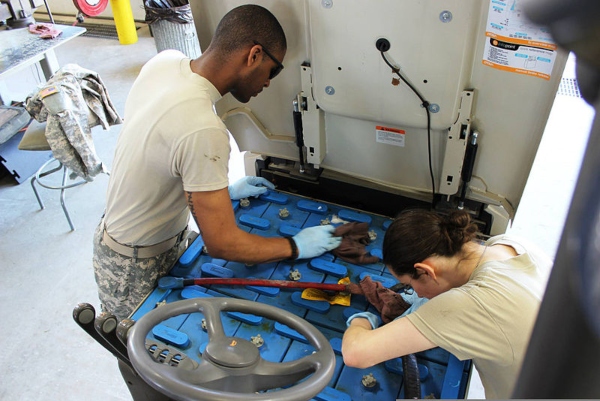
Quartermaster & Chemical Equipment Repair Specialists have one of the worse jobs in the Army for a different reason compared to the two previous military roles.
For starters, Army MOS 91J Specialists serve an important albeit unpopular job role.
You do get to learn a specialty that presents you with more long-term career options compared to Army food service or housekeeping.
However, the demands of the job are not ideal as Army MOS 91J Specialists work in noisy, hot, and otherwise uncomfortable settings.
Of course, the U.S. Army has nothing but great things to say about the military job:
As a Quartermaster and Chemical Equipment Repairer, you’ll use the latest technology to supervise or diagnose, disassemble, and perform repairs on chemical equipment, quartermaster machinery, forced-air heaters, and special-purpose equipment to ensure that they are ready to support our troops.
Sounds interesting enough, right?
The job reviews on Indeed.com from military vets that worked MOS 91J have relatively good things to say about the job despite the grueling work.
Work Environment
The biggest knock with Army Quartermaster & Chemical Equipment Repair (MOS 91J) is the work demands.
It’s physically exhausting work like most blue-collar assignments along with the miserable work conditions.
Since you maintain and repair heating systems and other internal combustion engines you can expect a loud and hot working environment.
It also doesn’t help that Army personnel notoriously work long hours (10-12 hour days, overtime is frequent).
For this reason, Quartermaster & Chemical Equipment Repair (MOS 91J) ranks among the worse jobs in the Army.
#2. Mortuary Affairs Specialist (MOS 92M)
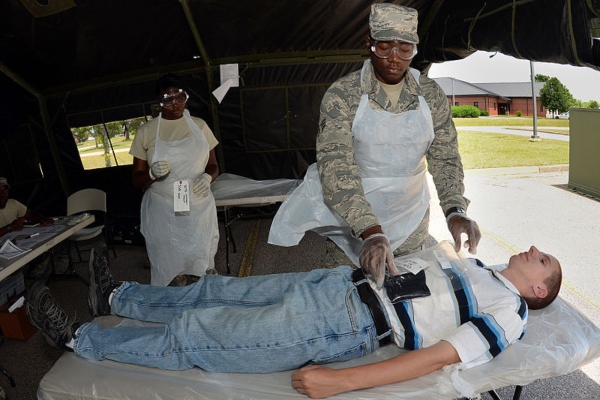
There are good and bad components to serving in the U.S. Army as a Mortuary Affairs Specialist (MOS 92M).
First, for the bad or uncomfortable news, you’ll be dealing with the deceased.
Of course, there are very few positions in the U.S. Army that are more bleak and depressing than taking care of the fallen until they are sent back home.
However, Mortuary Affairs Specialists also fulfill an important and sacred job function in the U.S. Armed Forces.
Loved ones depend on Mortuary Affairs Specialists (MOS 92M) to handle the deceased with the utmost respect, compassion, and care.
As a result, Mortuary Affairs Specialists may work out in the field locating, identifying, and transporting corpses back to the mortuary.
Or, they may take care of the body back at the morgue as well as categorize personal possessions to make sure they return to the family.
Lastly, Army MOS 92M Specialists may participate in the scheduling or managing funeral arrangements or the military burial.
Benefits vs. Disadvantages
You do acquire some worthwhile job skills and medical training that can translate to civilian life after leaving the Army.
Furthermore, many Army Mortuary Affairs Specialists get to live and work in Hawaii where the central identification laboratory exists.
The problem is that it takes a special breed of human to have the stomach and conscience to handle human remains.
Unfortunately, most recruits that enlist in the Army directly out of high school or college do not have the mental fortitude to handle the assignment, even if they think they’ll be okay beforehand.
Therefore, you’ll definitely want to take your time carefully analyzing the pros and cons of Army MOS 92M before committing to the profession.
Since most troops do not want to handle the dead, they consider Army Mortuary Specialists (MOS 92M) as having one of the worse jobs in the Army.
#1. Water Treatment Specialist (MOS 92W)
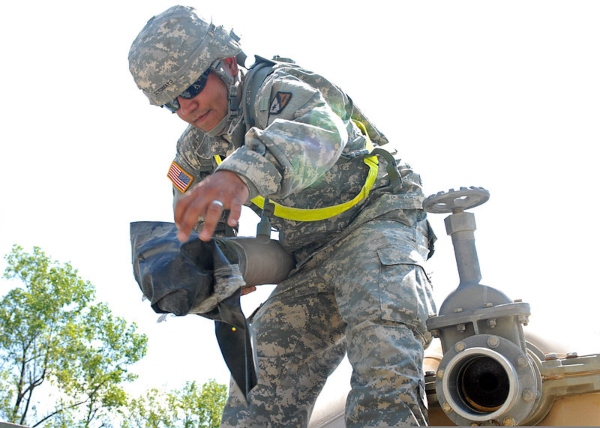
Water treatment is not something that you generally think about when serving in the U.S. Army, yet it actually exists as a job function.
Why?
The majority of the rest of the world lacks the clean water sources and infrastructure of the United States.
Therefore, when troops are assigned overseas, they often need to implement water treatment practices to make sure it’s safe and healthy.
Waterborne illnesses are among the most deadly and widespread problems not only in third-world countries but also in the developing world.
Accordingly, Army Water Treatment Specialists (MOS 92W) verify that water is safe not only for soldiers but area residents.
Water Treatment Specialists provide an essential job function and are incredibly important to military bases that exist overseas.
However, that doesn’t mean the military job has its fair share of disadvantages.
For starters, you are not going to live or work in the most desirable places in the world.
Water Treatment Specialists are assigned to various third-world countries for a reason.
You can either view the assignment as a humanitarian effort that requires sacrifices on your end, or a form of punishment.
Advantages vs. Disadvantages
Water Treatment Specialists (MOS 92W) frequently get deployed following natural disasters.
It means that you’ll be part of the initial rescue and restoration phase, but once again have to deal with less-than-ideal living conditions.
Army Water Treatment Specialists sometimes feel more like humanitarian aids than soldiers (which is valued by some recruits).
Moreover, along with less-than-ideal working conditions, many of the job tasks are physically demanding and exhausting.
There is zero debate that Army Water Treatment Specialists aren’t necessary or important.
It’s just far from the most glamorous job in the U.S. Army.
- Ikon Pass Military Discount: Learn How To Save Big - January 31, 2025
- RTIC Military Discount: Find Out How To Save Big on Gear - January 30, 2025
- Traeger Military Discount: Learn How To Save Big on Smokers - January 28, 2025

